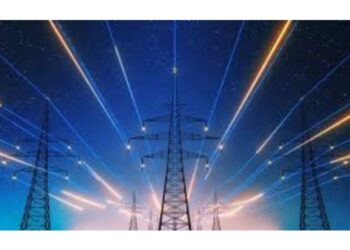As the world increasingly turns to renewable energy sources, solar power has become a leading solution in the fight against climate change. Among the various advancements in the solar industry, Artificial Intelligence (AI) is emerging as a game-changer, particularly in solar module manufacturing. By enhancing efficiency, reducing costs, and improving product quality, AI is revolutionizing the way solar panels are produced, ultimately benefiting consumers with more affordable and reliable solar energy solutions.
Revolutionizing the Manufacturing Process
Manufacturing solar modules is a complex process that involves multiple steps, from the production of solar cells to their assembly into panels. AI is transforming this process by optimizing every stage. For example, AI-powered systems are used to monitor and adjust machinery in real-time, ensuring that the production line runs smoothly and efficiently. These systems can predict potential issues before they arise, reducing downtime and ensuring consistent output quality.
Machine learning algorithms, a subset of AI, are also being employed to analyze vast amounts of production data. By studying patterns and identifying inefficiencies, AI can recommend improvements that lead to faster production cycles, less waste, and lower energy consumption during manufacturing. This not only cuts down on operational costs but also enhances the sustainability of the manufacturing process, aligning with the green energy goals of solar companies.
Enhancing Quality Control
One of the key challenges in solar panel production is ensuring the highest quality of materials and products. A small defect in a solar module can affect its efficiency, reducing the amount of energy it generates. AI technologies, such as computer vision, are now being used to inspect every solar module as it is produced. These systems can detect even the tiniest imperfections, like cracks or discolorations, which might go unnoticed by the human eye.
By automating the quality control process, AI ensures that only solar panels that meet the highest standards make it to the market. This results in more reliable and durable solar products for consumers, reducing the need for costly repairs or replacements down the line.
Reducing Costs for Consumers
Perhaps the most significant benefit of AI in solar module manufacturing is the reduction in costs. AI-driven efficiency improvements lower the cost of production, and these savings are passed on to consumers. As the production process becomes more streamlined and resource-efficient, manufacturers can offer solar panels at more affordable prices. This, in turn, makes solar energy accessible to a larger number of homeowners, businesses, and organizations.
Additionally, AI can help optimize supply chains by predicting demand, managing inventories, and ensuring timely deliveries. This further reduces logistical costs, leading to faster installation times and lower overall costs for customers.
The Future of Solar Energy
AI’s role in solar module manufacturing is just the beginning. As technology continues to evolve, we can expect even greater advances that will make solar energy more affordable, efficient, and accessible. From improving the performance of solar cells to optimizing energy storage solutions, AI is poised to play a critical role in the renewable energy revolution.
For consumers, the result is clear: AI is making solar energy more efficient, reliable, and cost-effective. By supporting advancements in solar technology, AI is helping to accelerate the transition to clean, sustainable energy solutions, benefitting both the planet and your pocketbook.
Conclusion
In summary, the impact of Artificial Intelligence on solar module manufacturing is profound. By increasing efficiency, improving product quality, and reducing costs, AI is helping to make solar energy a more viable option for everyone. As these technologies continue to evolve, consumers can look forward to a future where solar energy is not only better for the environment but also more affordable and accessible than ever before.













